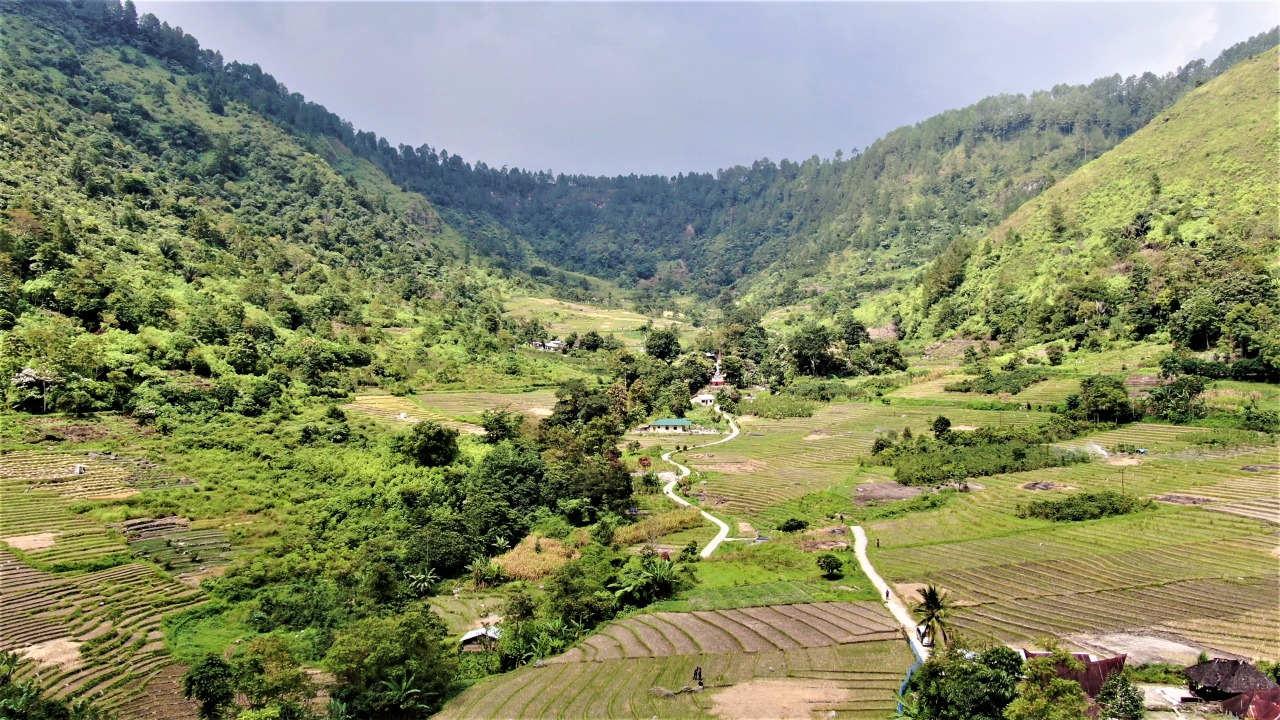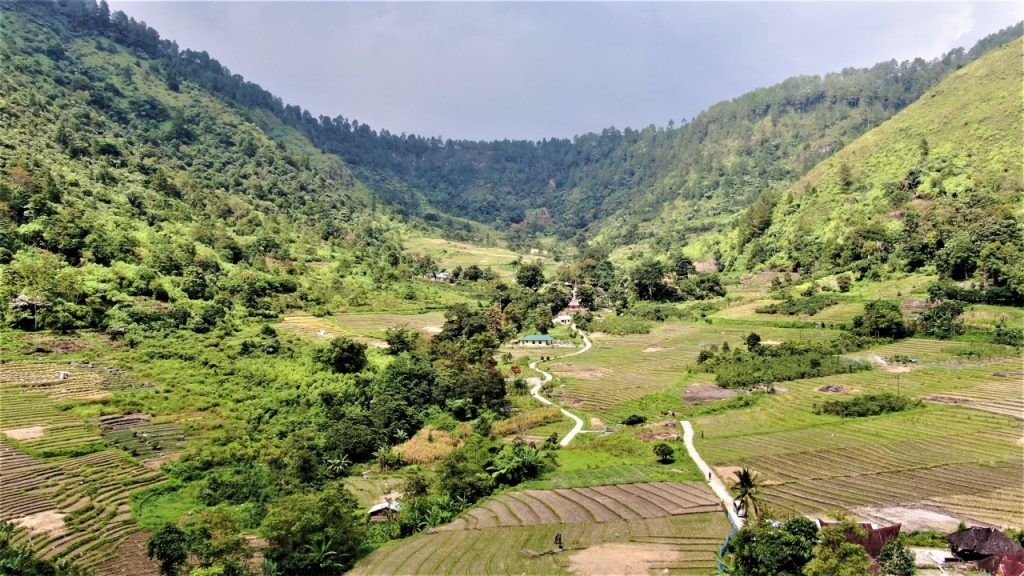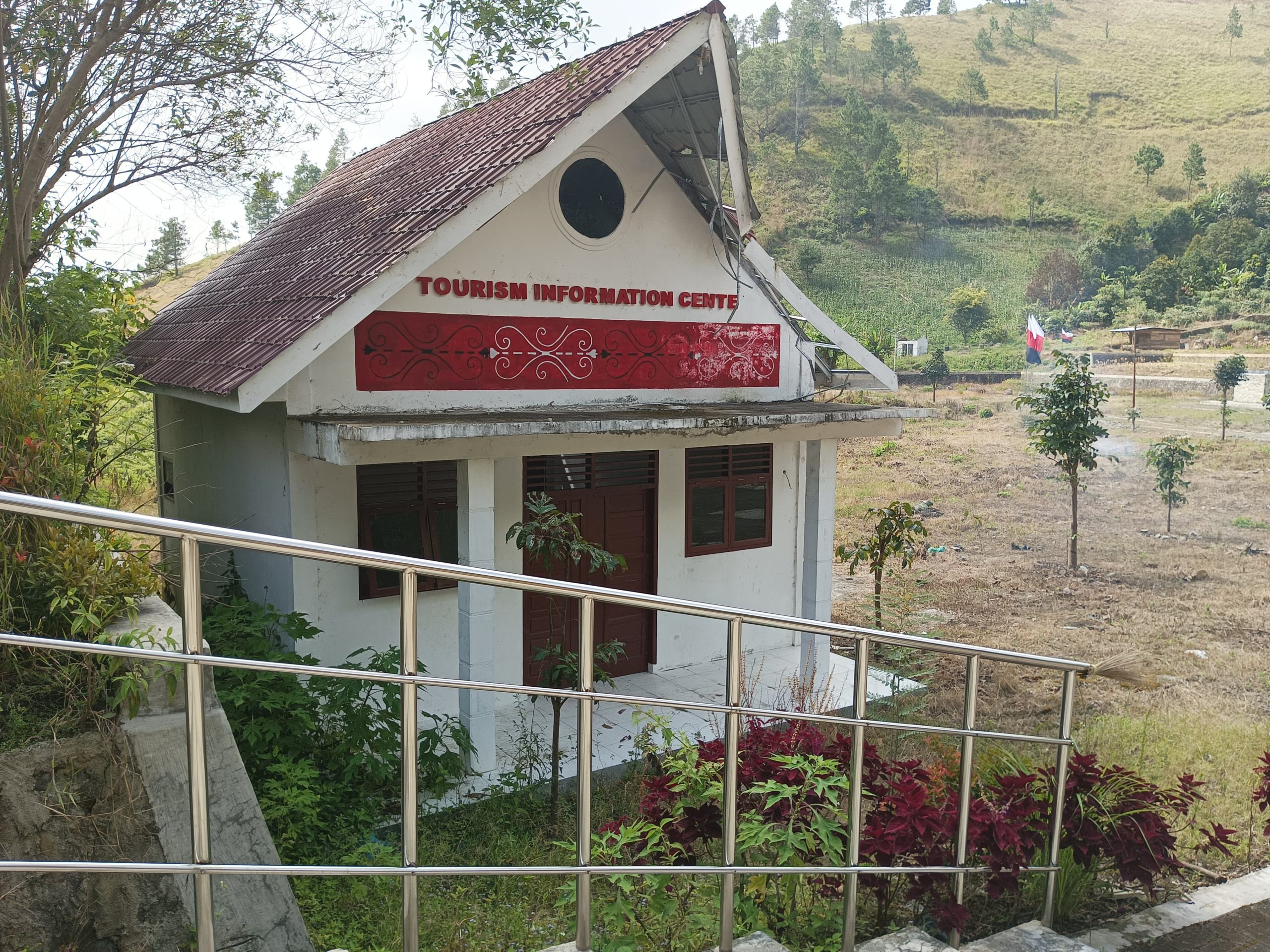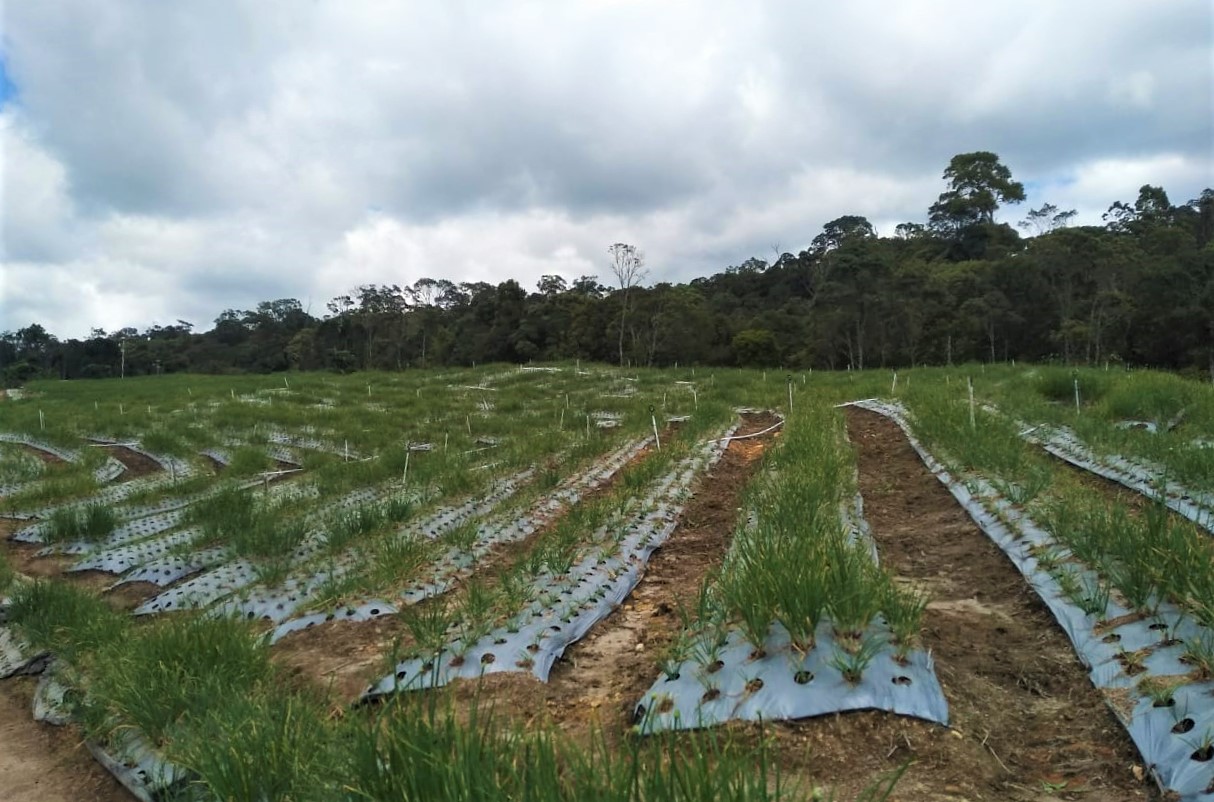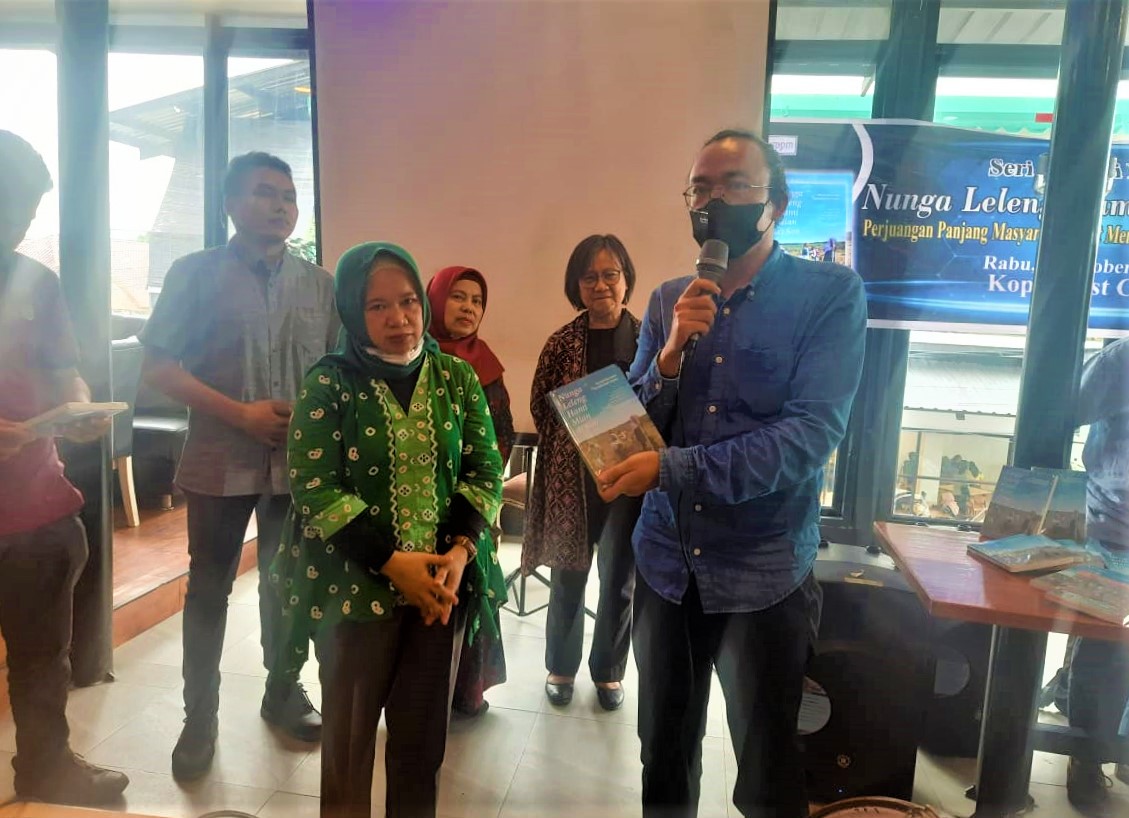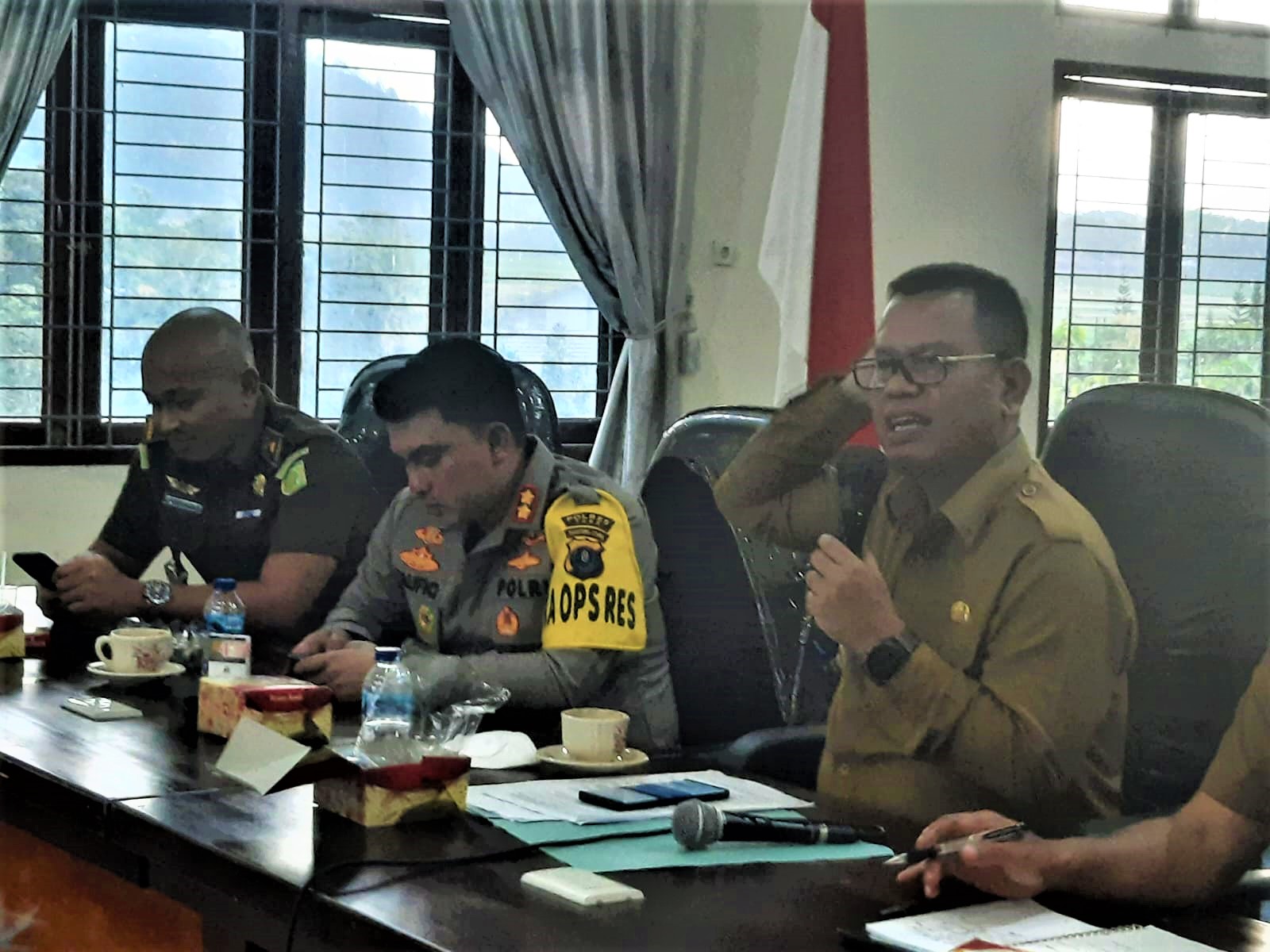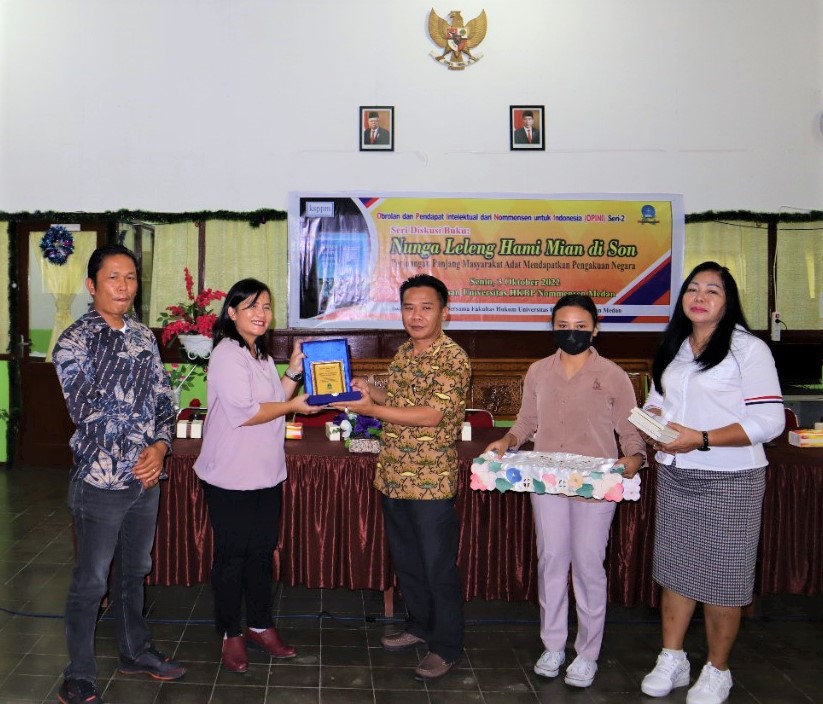Various projects of the Lake Toba Authority Implementing Agency (BPODT) that have been present in Sigapiton since six years ago have often caused conflict and disturbed the peace of the community’s life, with various problems such as customary land grabbing and landslides. The international tourism program promoted by BPODT has converted land and changed the activities of people who used to farm rice and onions into people who expect Direct Cash Assistance (BLT) because they lost their ‘passion’ for farming.
The head of Sigapiton Village admitted that the community’s income is approximate Rp. 500,000 per month. Therefore, almost all Sigapiton villagers are eligible for BLT. In addition to the conversion of agricultural land into development, monkeys have also become a new pest that damages crops due to the unavailability of fruits in the forest. Deforestation is one of the causes of this new pest. That is why the community abandoned their planted agricultural lands.
Fertile land can be a source of livelihood for the people of Sigapiton. In the 1950s Sigapiton was famous for its shallots. They sold tons of shallots every week to Ajibata and were able to make farmers from Brebes, Central Java, fascinated by the onion yield and bought Sigapiton onions for seed. But all that went away when the steam from the Indorayon factory destroyed all the onion plants on the robean (ridge); their shallot leaves were burnt. As a result, they no longer grow onions on a large scale. It is clear that farmers’ lives are conditioned by the system.
The aspiration to improve the welfare of the Sigapiton community through tourism programs can be called “a dream in broad daylight.” The government considers farmers as losers and that tourism is the solution to welfare. If examined more deeply, the tourism offered does not answer the problems of farmers, and even exacerbates them. Land grabbing conflicts continue to be the main problem of farmers in Indonesia, especially in the Lake Toba region. Sigapiton experienced land grabbing under the guise of international tourism development.
In addition to the deprivation of living space, which is said to improve the economy but in fact, only accelerates the wheels of capital accumulation, there is currently a conflict over road construction with a budget of 60 billion from the state budget. Some community members rejected this project because the government did not provide adequate compensation. Given the limited land in Sigapiton, it is natural for the community to demand compensation for every inch of land that will be used for road expansion as part of the tourism project.
“For the village road, the current size is sufficient; the government just needs to improve it so that we can easily bring our crops to Sibisa,” said T. Nadapdap, a Sigapiton native.
The government argues that expanding the road will make it easier for tourists to come and stay at the home-stays built-in Sigapiton village, increasing local income. This reasoning is bizarre and disturbing. Many home-stays were indeed built in Sigapiton. But the community claims not to feel the impact of tourism on improving their household economy. The reason is that guests who visit only stay at home stays owned by Caldera and an investment company called Bobobox.
If tourism is meant to improve the welfare of local communities, the government should only build home-stays managed by Sigapiton residents and not accept the investor named Bobobox. That way all profits from visitors staying at home stays are enjoyed by the community.
Article 25 of Law No. 49/2016 on the Lake Toba Tourism Area Management Authority states that BPODT is given the convenience of changing the function of forest areas and accelerating the process of obtaining management rights by statutory provisions. However, the law also stipulates that the community has the right to receive reports on tourism development. In fact, until now the community considers BPODT not transparent.
The Sigapiton community expects a transparent tourism program and respects Toba Batak customs because customs are still strong in daily life in Sigapiton. However, so far the tourism program does not involve the community collectively and tends to only involve local elites.**

